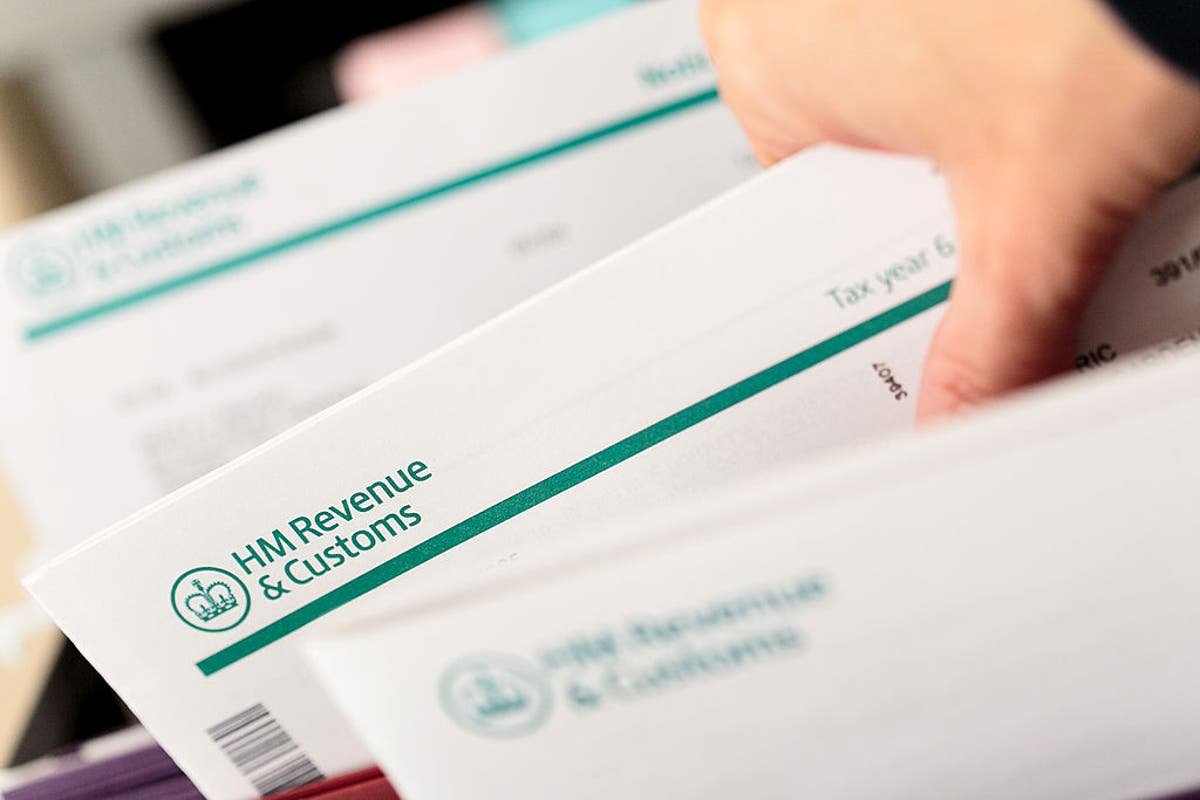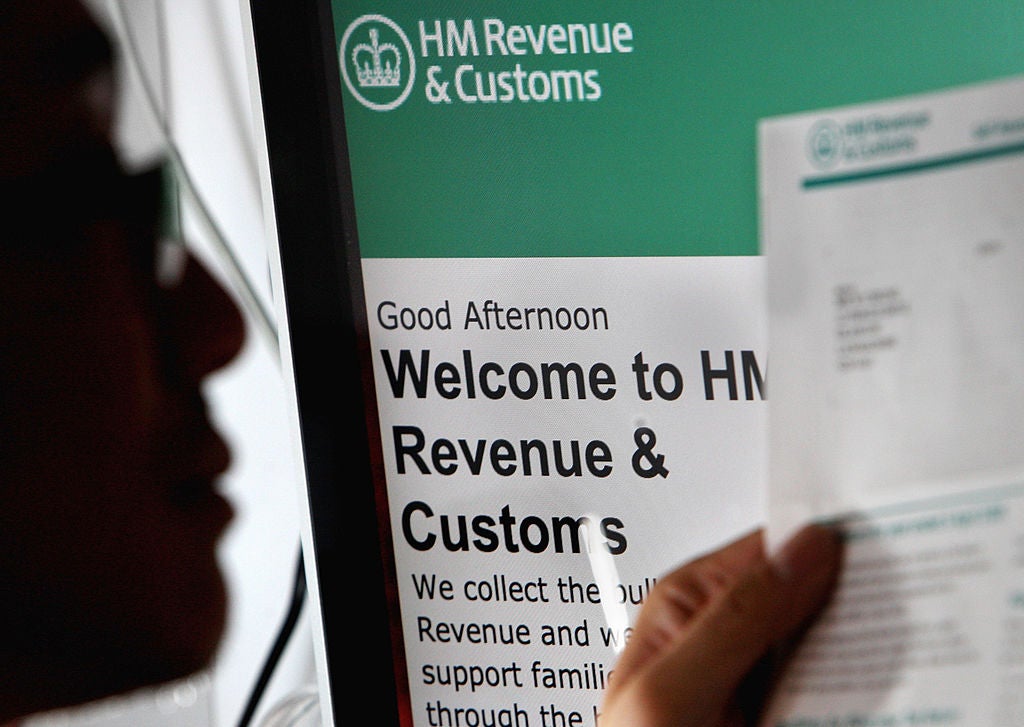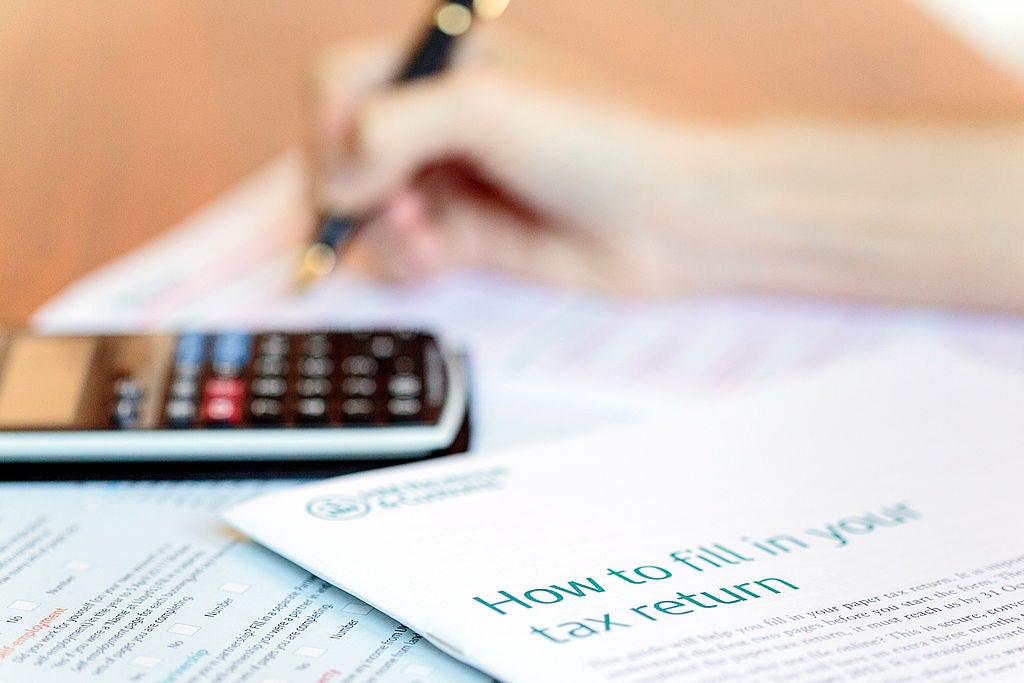
How to reduce your tax bill with self-assessment deadline near
Your support helps us to tell the story
From reproductive rights to climate change to Big Tech, The Independent is on the ground when the story is developing. Whether it’s investigating the financials of Elon Musk’s pro-Trump PAC or producing our latest documentary, ‘The A Word’, which shines a light on the American women fighting for reproductive rights, we know how important it is to parse out the facts from the messaging.
At such a critical moment in US history, we need reporters on the ground. Your donation allows us to keep sending journalists to speak to both sides of the story.
The Independent is trusted by Americans across the entire political spectrum. And unlike many other quality news outlets, we choose not to lock Americans out of our reporting and analysis with paywalls. We believe quality journalism should be available to everyone, paid for by those who can afford it.
Your support makes all the difference.
The self-assessment deadline is approaching but there is still time to cut your tax bill before the end of January.
Around 12m people are expected to file an online self-assessment tax return to HM Revenue and Customs (HMRC) by then.
More than five million forms were still outstanding at the start of the month, according to HMRC – and the taxman can issue £100 fines to those who fail to file and pay any tax owed by the end of January.
So, it is important to pay whatever you owe, but you should also ensure you are making the most of the reliefs and allowances that can keep your tax bill down.
Here is what you need to consider when filing your return.
Who has to file a tax return?
Anyone who has untaxed earnings may need to complete a self-assessment tax return.
If your main source of income is from a regular salary earned from a company you work for, you may not need to worry as most of your taxes will be taken from your monthly payslip automatically.
But HMRC doesn’t automatically take taxes from the self-employed. Instead, if you are a sole trader or operate through a limited company, you need to keep a record of your income and expenses and file a tax return, as well as paying any tax due to the taxman.
You can file a paper tax return by the end of October each year or an online form by 31 January.
This applies to income from the previous tax year between 6 April to 5 April. So anyone filing this month will be reporting earnings from the 2023/2024 tax year.

You may also need to pay income tax on money earned from renting out a property, selling assets or being paid dividends – see here for more details.
High earners could also fall foul of the high income child benefit charge and savers could even be hit if the interest earned on their money goes above £1,000 for basic rate taxpayers and £500 for higher earners.
The main way to reduce your bill at the last minute is to make sure you are claiming all reliefs and allowances you are entitled to.
Work allowances
If your job requires you to live far away from your office or your employer doesn’t have one, you may be able to claim a home working allowance to cover broadband and electricity costs.
This could be worth £6 a week – or you may be able to claim the exact amount you’ve spent but it is best to check with an accountant.
You may also be able to claim for professional fees and memberships, clothing and travel if it is specifically for work.
Sarah Coles, head of personal finance at Hargreaves Lansdown, suggests collecting together all your receipts and invoices,and use the list on the government website to check you haven’t missed anything.
She says: “It’s a big job, so make sure you cut any corners you can. If you work from home or use your own car for work and don’t have time to calculate your actual usage, instead of working out your expenses, you can use flat rates for both.”
Getting charitable
Make sure you tell HMRC about any charity donations you have claimed Gift Aid on, especially if you are a higher rate taxpayer.
Charities can claim 25p of Gift Aid for every £1 you donate and higher rate taxpayers can claim the difference between the tax paid on the donation and the relief claimed.
For example, if you donate £100 to charity – the organisation can claim Gift Aid to make your donation £125. If you pay 40 per cent tax, you can personally claim back £25.00.
Laith Khalaf, head of investment analysis for AJ Bell, adds that charitable donations can be carried back one tax year, provided it is recorded in the forthcoming January tax return.
He says: “If you’re a higher or additional rate taxpayer this could trigger a tax rebate which would be set against any tax you owe.”
Make use of pension tax relief
Your pension contributions could also help reduce your tax bill.
Pension contributions earn tax relief, which is essentially extra money from the government to repay the tax you would have paid on the income, effectively as a reward for saving.
The 20 per cent rebate is applied automatically, helping basic rate taxpayers.
But unless you’re using salary sacrifice to make pension contributions, higher rate taxpayers may need to make a claim through self-assessment for the extra 20 per cent of tax relief they are entitled to.
Research by PensionBee suggests hundreds and thousands are failing to do this and could be missing out on £250m per year in relief.

Joshua Gerstler, wealth manager at The Orchard Practice, highlights that a higher rate taxpayer putting the maximum net annual contribution of £48,000 into a pension, will get £12,000 added by the government in the form of tax relief.
Then on top of this you will have the reduction in your tax bill of £12,000.
Gerstler adds: “So as well as looking after your future self by putting money into your pension, the £60,000 contribution has only cost you £36,000. Just remember that the tax relief relates to when you make the contribution, not when you file your tax return.
“So if you make a contribution today it will reduce next year’s tax bill.”
Dean Butler, managing director for retail direct at Standard Life, adds that claims can be made on contributions for the previous four tax years.
He says: “It’s worth investigating as you could be owed thousands of pounds from the government. HMRC doesn’t tend to prompt non-self-employed people to submit a self-assessment, so any higher rate taxpayers who pay their tax through PAYE need to actively request to submit a tax return.”
Even if it is too late to reduce your current tax bill, you could take steps now to put yourself in a better position for next year.
Khalaf adds: “Next January promises to be even worse for savers and investors filling in their tax returns, thanks to lower capital gains tax and dividend allowances, not to mention frozen income tax bands pushing more people into higher tax brackets.
“It’s still possible to make pension contributions and ISA subscriptions in this tax year, which could well help to reduce your tax bill next January, especially if you’re a higher rate or additional rate taxpayer.
“The January 2026 tax return might well feel like a problem for another day, but action now could really take the edge off what might otherwise prove to be a punishing tax bill this time next year.”







